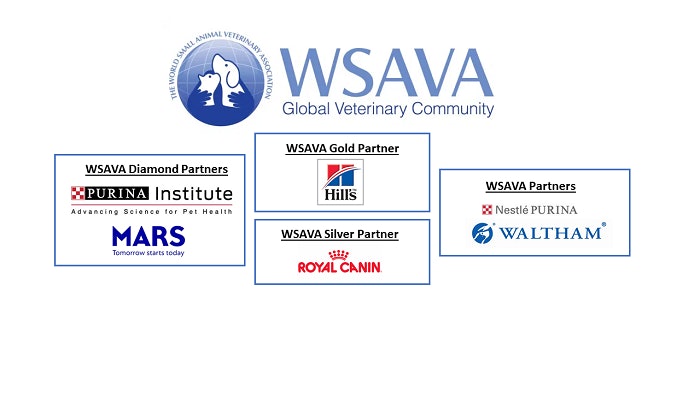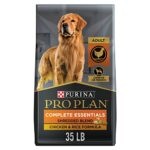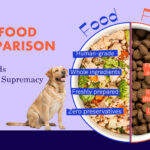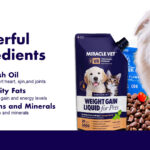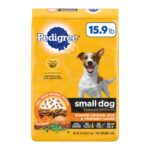Wsava Approved Dog Food meets global nutritional standards for pets. It ensures balanced, high-quality diets for dogs.
Choosing WSAVA-approved dog food guarantees your pet receives optimal nutrition. These foods adhere to strict guidelines set by the World Small Animal Veterinary Association (WSAVA). This organization evaluates pet food based on scientific research and expert recommendations. By selecting food approved by WSAVA, you prioritize your dog’s health and well-being.
This choice can lead to better overall health, improved digestion, and a longer, happier life for your pet. Always check for WSAVA endorsement on pet food labels to ensure the best nutritional standards. Providing your dog with WSAVA-approved food is a responsible and beneficial decision for their long-term health.
Introduction To Wsava Guidelines
Choosing the right food for your dog is crucial. The World Small Animal Veterinary Association (WSAVA) provides guidelines to help you make informed decisions. WSAVA-approved dog food ensures your pet gets balanced nutrition.
What Is Wsava?
WSAVA stands for the World Small Animal Veterinary Association. It is a global organization dedicated to small animal care. WSAVA sets guidelines for pet nutrition and health. These guidelines help pet owners select the best food for their dogs.
Importance Of Wsava Approval
WSAVA approval means the food meets high standards. These standards ensure the food is safe and nutritious. WSAVA-approved dog foods are formulated by experts. They contain the right balance of nutrients for your dog’s health.
Benefits of WSAVA-approved dog food:
- Balanced nutrition
- High safety standards
- Expert formulation
WSAVA guidelines focus on quality and safety. They help you choose the best for your furry friend. Always look for WSAVA-approved labels when buying dog food.

Credit: www.facebook.com
Essential Nutrients In Dog Food
Every dog needs a balanced diet to stay healthy. Understanding the essential nutrients in dog food helps ensure your furry friend gets the best nutrition. WSAVA-approved dog foods are formulated to provide these crucial nutrients. This section delves into the key components of a balanced diet, essential vitamins, and minerals.
Balanced Diet For Dogs
A balanced diet for dogs includes proteins, fats, carbohydrates, vitamins, and minerals. Each nutrient plays a vital role in your dog’s health. Proteins are crucial for muscle growth and repair. Fats provide energy and support brain health. Carbohydrates offer a quick energy source. Together, these nutrients keep your dog active and healthy.
Key Vitamins And Minerals
Vitamins and minerals are essential for your dog’s overall well-being. They support various bodily functions and prevent deficiencies. Here’s a list of key vitamins and their benefits:
- Vitamin A: Promotes vision and immune health.
- Vitamin D: Aids in calcium absorption for strong bones.
- Vitamin E: Acts as an antioxidant, protecting cells.
- Vitamin K: Helps in blood clotting and bone health.
Essential minerals include:
- Calcium: Supports bone and teeth health.
- Phosphorus: Works with calcium for bone strength.
- Potassium: Maintains fluid balance and muscle function.
- Magnesium: Supports enzyme function and muscle health.
Ensuring your dog food is WSAVA-approved guarantees these nutrients are included. This helps maintain your dog’s health and vitality.
Evaluating Dog Food Quality
Choosing the right dog food is crucial for your pet’s health. Quality dog food can improve your dog’s life. WSAVA approved dog food meets high standards. In this section, we will evaluate dog food quality.
Analyzing Ingredient Lists
The ingredient list reveals the dog food’s contents. The first ingredient should be a quality protein source. Look for ingredients like chicken, beef, or fish. Avoid foods with meat by-products or fillers.
Here is a comparison of good vs. poor ingredients:
| Good Ingredients | Poor Ingredients |
|---|---|
| Chicken | Meat By-Products |
| Beef | Fillers (e.g., corn, soy) |
| Fish | Artificial Additives |
Understanding Food Labels
Food labels give essential nutrition information. Check for AAFCO statements to ensure quality. The label should state if the food is for growth, maintenance, or all life stages.
Important label components include:
- Guaranteed Analysis: Lists protein, fat, fiber, and moisture.
- Feeding Guidelines: Provides serving suggestions based on weight and age.
- Manufacturer Information: Check for contact details for questions.
WSAVA guidelines recommend foods from reputable companies. These companies follow strict safety protocols and conduct regular testing. Always read and understand labels for your dog’s safety.
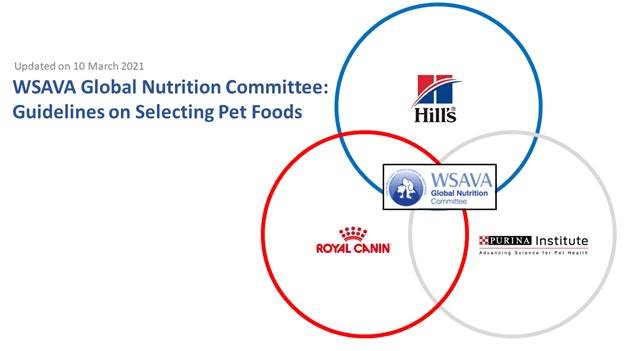
Credit: www.petfoodindustry.com
Top Wsava Approved Dog Foods
Choosing the best food for your dog can be overwhelming. The World Small Animal Veterinary Association (WSAVA) has guidelines to help. WSAVA approved dog foods ensure your pet’s health and well-being.
Dry Dog Food Favorites
Dry dog food is convenient and easy to store. Below are some top WSAVA approved options:
| Brand | Product | Key Benefits |
|---|---|---|
| Hill’s Science Diet | Adult Large Breed |
|
| Royal Canin | Medium Adult |
|
| Eukanuba | Adult Small Breed |
|
Wet Dog Food Recommendations
Wet dog food offers higher moisture content. This can be beneficial for hydration. Here are some top WSAVA approved wet foods:
- Purina Pro Plan: Savor Adult Classic
- Rich in protein
- Supports immune health
- Contains essential vitamins
- Hill’s Prescription Diet: c/d Multicare
- Supports bladder health
- Clinically proven nutrition
- Contains antioxidants
- Royal Canin: Gastrointestinal Low Fat
- Supports digestive health
- Low fat content
- Helps manage weight
Grain-free Vs. Grain-inclusive Diets
Choosing the right diet for your dog can be confusing. One major debate is grain-free vs. grain-inclusive diets. Both have their pros and cons. Understanding these can help you make an informed decision for your furry friend.
Myths About Grain-free Options
Many believe grain-free dog food is better. This is not always true. Here are some common myths:
- Myth: Grains cause allergies in dogs.
- Fact: Most dog allergies are to meat, not grains.
- Myth: Grain-free food is more natural.
- Fact: Dogs have adapted to eat grains.
- Myth: Grain-free diets are healthier.
- Fact: No evidence shows they are better than grain-inclusive diets.
Benefits Of Grains In Dog Food
Grains can be beneficial for dogs. They provide essential nutrients and energy. Here are some key benefits:
| Grain | Benefit |
|---|---|
| Rice | Easy to digest and a good energy source. |
| Oats | Rich in fiber, supports digestive health. |
| Barley | Provides vitamins and minerals. |
Including grains can balance your dog’s diet. They offer a mix of nutrients that are hard to get from meat alone. Some benefits include:
- Grains are a good source of fiber.
- They provide essential vitamins and minerals.
- Grains can help maintain healthy digestion.
In summary, both grain-free and grain-inclusive diets have their place. Your dog’s specific needs will determine the best choice.
Specialized Diets For Health Conditions
Choosing the right food for your dog is important. Some dogs have special health needs. A specialized diet can help them stay healthy and happy. WSAVA approved dog food offers many options.
Prescription Diets
Prescription diets are made for specific health issues. Vets often recommend these foods. They can help with kidney problems, liver issues, and more.
| Health Issue | Diet Type |
|---|---|
| Kidney Disease | Low Protein |
| Liver Disease | Low Copper |
| Diabetes | High Fiber |
Allergies And Sensitivities
Some dogs are allergic to certain foods. Others have food sensitivities. WSAVA approved foods can help these dogs.
Common allergens include:
- Beef
- Dairy
- Wheat
Allergy-friendly diets often use unique proteins. These could be:
- Duck
- Venison
- Kangaroo
These diets help reduce itching and digestive issues.
The Role Of Life Stage In Dog Nutrition
The Role of Life Stage in Dog Nutrition
Understanding the role of life stage in dog nutrition is crucial. Dogs have different nutritional needs at various life stages. Feeding your dog the right food helps them stay healthy and active. The World Small Animal Veterinary Association (WSAVA) approves certain dog foods that meet these needs.
Puppy Nutrition
Puppies grow quickly and need a diet rich in nutrients. WSAVA-approved puppy foods provide balanced nutrition. These foods contain higher protein levels for muscle growth.
- Essential vitamins and minerals
- Increased calorie content for energy
- Smaller kibble sizes for easy chewing
Puppies also need omega-3 fatty acids for brain development. It’s important to feed them food designed for their age group.
Senior Dog Dietary Needs
Senior dogs have different nutritional needs. Their metabolism slows down, and they may become less active.
WSAVA-approved senior dog foods focus on:
- Reduced calorie content to prevent weight gain
- Higher fiber levels for digestion
- Joint support ingredients like glucosamine and chondroitin
Maintaining proper nutrition for senior dogs can improve their quality of life.
Antioxidants in senior dog foods help combat aging effects. Always choose a diet approved by experts for your dog’s specific needs.
Raw Diets And Wsava Standards
Many dog owners consider raw diets for their pets. These diets include raw meat, bones, and organs. The World Small Animal Veterinary Association (WSAVA) has set standards for dog food. They provide guidelines for balanced and safe nutrition. It’s important to understand how raw diets align with WSAVA standards.
Pros And Cons Of Raw Feeding
Raw feeding has both benefits and drawbacks. Let’s explore them:
| Pros | Cons |
|---|---|
| Improved coat condition | Risk of bacterial infection |
| Increased energy levels | Nutritional imbalance |
| Better dental health | Potential choking hazards |
| Weight management | Expensive and time-consuming |
Wsava Position On Raw Diets
WSAVA has concerns about raw diets. They emphasize the importance of balanced nutrition. Raw diets can lack essential nutrients. WSAVA stresses the need for complete and balanced meals.
- WSAVA advises against feeding raw bones.
- They highlight the risk of bacterial contamination.
- They recommend cooked diets for safety.
WSAVA suggests consulting a veterinarian. They can help ensure a nutritionally balanced diet. A vet can also monitor your dog’s health.
Homemade Dog Food: Is It A Good Idea?
Many pet owners consider making homemade dog food. They think it’s healthier. But, is it really a good idea? Let’s explore this topic.
Nutritional Completeness
Dogs need a balanced diet. This includes proteins, fats, vitamins, and minerals. Homemade dog food might lack these nutrients. A balanced diet supports their growth and energy.
A table can help show the essential nutrients:
| Nutrient | Importance | Food Source |
|---|---|---|
| Protein | Muscle growth and repair | Meat, fish, eggs |
| Fat | Energy and skin health | Fish oil, chicken fat |
| Vitamins | Overall health | Vegetables, fruits |
| Minerals | Bone health | Bones, leafy greens |
Consulting With A Veterinarian
Before making homemade dog food, talk to a veterinarian. They can guide you. They ensure the diet is balanced.
Important points to discuss with your vet include:
- Your dog’s age and weight
- Any allergies or health issues
- Essential supplements
A vet can also suggest recipes. This ensures your dog gets all the needed nutrients. Consulting a professional helps avoid health risks.
Remember, your dog’s health is crucial. Proper nutrition keeps them happy and active.
How To Transition To A New Dog Food
Switching to a new dog food can be tricky. A gradual transition helps your dog adjust to the new diet. Follow a step-by-step process to ensure a smooth change.
Step-by-step Transitioning
Transitioning your dog to a new food should be done over a week. Here’s a simple plan:
- Day 1-2: Mix 25% new food with 75% old food.
- Day 3-4: Mix 50% new food with 50% old food.
- Day 5-6: Mix 75% new food with 25% old food.
- Day 7: Serve 100% new food.
This gradual change helps avoid digestive issues. Stick to the plan for best results.
Monitoring Your Dog’s Reaction
Keep an eye on your dog during the transition. Look for signs of discomfort:
- Vomiting
- Diarrhea
- Lack of appetite
- Excessive gas
If any of these signs occur, slow down the transition. Extend each step by a few days.
Ensure your dog stays hydrated. Fresh water is crucial during food transitions.
Record your dog’s reactions in a notebook. This helps identify any patterns.
Consult your vet if issues persist. They can provide additional guidance.
Understanding Food Allergies And Intolerances
Food allergies and intolerances in dogs can cause discomfort. Understanding the difference helps in choosing the right food. Allergies trigger immune responses, while intolerances affect digestion. Knowing common allergens and hypoallergenic options is crucial.
Identifying Common Allergens
Many dogs are allergic to specific ingredients. Common allergens include:
- Beef
- Dairy
- Chicken
- Wheat
- Soy
- Eggs
Symptoms of allergies include itching, skin irritations, and digestive issues. It’s important to identify the allergen to avoid these symptoms. Consult your vet for accurate diagnosis and advice.
Hypoallergenic Dog Food Options
Hypoallergenic dog foods are designed to minimize allergic reactions. These foods use unique protein sources and limited ingredients.
| Brand | Protein Source | Special Features |
|---|---|---|
| Royal Canin | Hydrolyzed Protein | Reduces allergen risk |
| Hill’s Science Diet | Venison | Single protein source |
| Blue Buffalo | Duck | Grain-free |
These foods are formulated to be gentle on your dog’s stomach. They help manage allergies and improve overall health. Always read labels to ensure the food meets your dog’s needs.
The Importance Of Probiotics And Fiber
Probiotics and fiber are vital for your dog’s health. They support digestion and promote a healthy gut. WSAVA approved dog food often includes these nutrients. This ensures your pet gets the best care possible.
Digestive Health In Dogs
Digestive health is crucial for your dog’s well-being. A healthy gut helps in nutrient absorption. It also boosts your dog’s immune system. Dogs with good digestion are happier and more active.
Probiotics are live bacteria that aid in digestion. They help balance the gut flora. Fiber aids in bowel movement and prevents constipation. Together, they ensure a smooth digestive process.
Choosing A Food With Prebiotics And Probiotics
Look for WSAVA approved dog food with prebiotics and probiotics. Prebiotics are food for probiotics. They help probiotics thrive in the gut. This combination enhances your dog’s digestive health.
Check the ingredient list on the dog food package. Look for terms like “live cultures” or “probiotic strains”. Also, ensure the food contains fiber sources like pumpkin or sweet potatoes.
| Ingredient | Benefit |
|---|---|
| Probiotics | Balance gut flora |
| Fiber | Aids bowel movement |
| Prebiotics | Feed probiotics |
Choosing the right dog food ensures your pet’s health. Probiotics and fiber are essential for a happy, healthy dog.
Feeding Practices And Portion Control
Feeding your dog the right amount is crucial for their health. Proper portion control ensures they get the nutrition they need. Overfeeding or underfeeding can lead to health problems. Let’s explore how to calculate the right amount and the role of feeding frequency.
Calculating The Right Amount
Determining the right amount of food involves several factors. Your dog’s age, weight, and activity level are important. Use the guidelines on the dog food packaging as a starting point.
| Dog’s Weight (lbs) | Daily Amount (cups) |
|---|---|
| 10 | 1/2 – 3/4 |
| 20 | 3/4 – 1 1/4 |
| 30 | 1 1/2 – 2 |
| 40 | 2 – 2 1/2 |
Remember to adjust based on your dog’s specific needs. Consult your vet for a more accurate assessment. Regularly check your dog’s weight to ensure they stay healthy.
The Role Of Feeding Frequency
Feeding frequency affects your dog’s digestion and energy levels. Puppies need to eat more often than adult dogs. Typically, puppies eat three to four times a day.
- Puppies (up to 6 months): 3-4 times a day
- Adult dogs: 2 times a day
- Senior dogs: 2 times a day
Adult dogs generally do well with two meals a day. This helps maintain their energy throughout the day. Senior dogs benefit from smaller, more frequent meals.
Always ensure fresh water is available. Monitor your dog’s eating habits and adjust as needed. Consistency in feeding times can help with digestion and routine.
Wsava Approved Treats And Supplements
WSAVA approved treats and supplements are great for your dog’s health. They follow guidelines set by the World Small Animal Veterinary Association (WSAVA). This ensures they are safe and beneficial for your furry friend.
Healthy Treats For Training
Training your dog is easier with WSAVA approved healthy treats. These treats are nutritious and delicious. They help in reinforcing good behavior without adding extra calories. Below are some examples of healthy training treats:
| Treat | Benefits |
|---|---|
| Carrot Sticks | Low in calories, high in fiber |
| Apple Slices | Rich in vitamins, good for teeth |
| Boiled Chicken | High protein, easy to digest |
Always choose treats that are low in fat and sugar. Avoid treats with artificial additives or preservatives. Healthy treats keep your dog happy and fit.
When To Use Supplements
Supplements can be important for your dog’s overall well-being. They provide essential nutrients that may be missing from regular dog food. Here are some instances when supplements might be needed:
- Poor Coat or Skin Condition
- Joint and Bone Health
- Digestive Issues
Omega-3 supplements help maintain a shiny coat. Glucosamine supports joint health. Probiotics improve digestion. Always consult your vet before adding any supplements. Your vet can recommend the best options for your dog’s specific needs.
Faqs On Wsava Approved Dog Foods
Dog owners often seek the best food for their pets. WSAVA approved dog foods ensure your pet gets optimal nutrition. This section answers common questions about WSAVA approved dog foods.
Addressing Common Concerns
What is WSAVA? WSAVA stands for World Small Animal Veterinary Association. It offers guidelines for pet nutrition.
Why choose WSAVA approved dog food? These foods meet high standards for safety and nutrition.
Are WSAVA foods expensive? Some may cost more, but they provide high value.
Can all dogs eat WSAVA foods? Yes, they suit most dogs. Always consult your vet first.
Where to buy WSAVA approved dog food? Find them at pet stores or online. Look for the WSAVA seal.
Tips From Veterinary Nutritionists
Follow the feeding guidelines: Each food has specific instructions. Stick to them for best results.
Watch your dog’s weight: Ensure your dog stays at a healthy weight. Adjust portions if needed.
Introduce new food slowly: Mix new food with old gradually. This helps avoid stomach upset.
Store food properly: Keep dog food in a cool, dry place. Seal bags tightly to maintain freshness.
Consult your vet regularly: Regular check-ups help monitor your dog’s health. Your vet can recommend the best diet.
| Common Concerns | Solutions |
|---|---|
| Expensive | High value, quality ingredients |
| Availability | Pet stores, online |
| Suitability | Consult your vet |
Credit: www.dlvet.com
Frequently Asked Questions
What Dog Foods Are Approved By Wsava?
The WSAVA approves brands like Hill’s Science Diet, Royal Canin, and Purina Pro Plan. Always check the latest WSAVA guidelines.
Is Blue Buffalo Wsava Compliant?
Blue Buffalo is not WSAVA compliant. WSAVA guidelines prioritize transparency and scientific backing, which Blue Buffalo lacks.
What Dog Food Brands Are Approved?
Approved dog food brands include Royal Canin, Hill’s Science Diet, Blue Buffalo, Purina Pro Plan, and Nutro. Always consult your vet.
Does Iams Follow Wsava?
Yes, IAMS follows WSAVA guidelines to ensure pet food quality and safety. Their products meet high nutritional standards.
Conclusion
Choosing WSAVA approved dog food ensures your pet gets balanced nutrition. These foods meet high standards for quality. Always consult your vet for the best options. Prioritize your dog’s health with trusted brands. Your furry friend deserves the best nutrition possible.
Make informed decisions for a happy, healthy pet.

